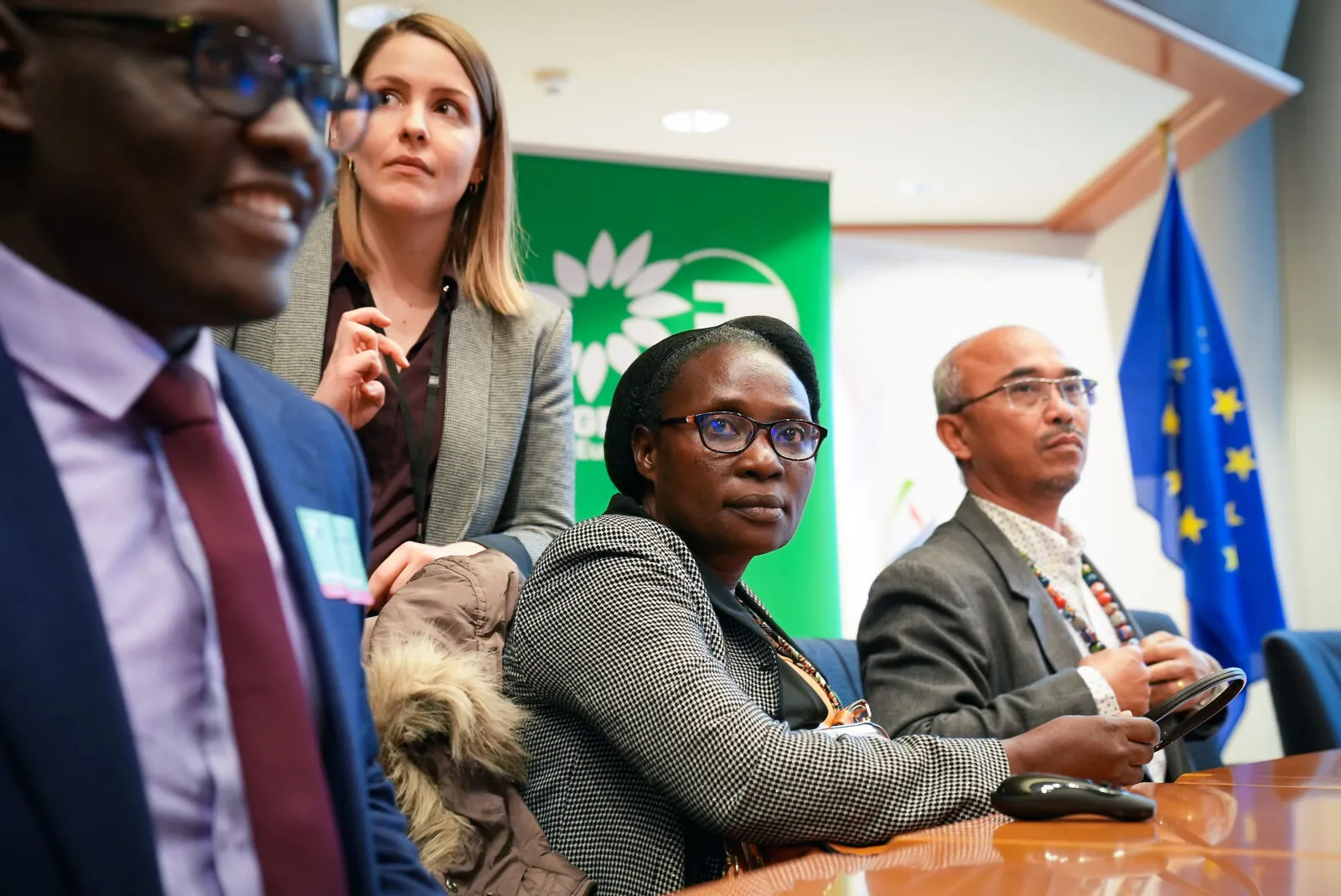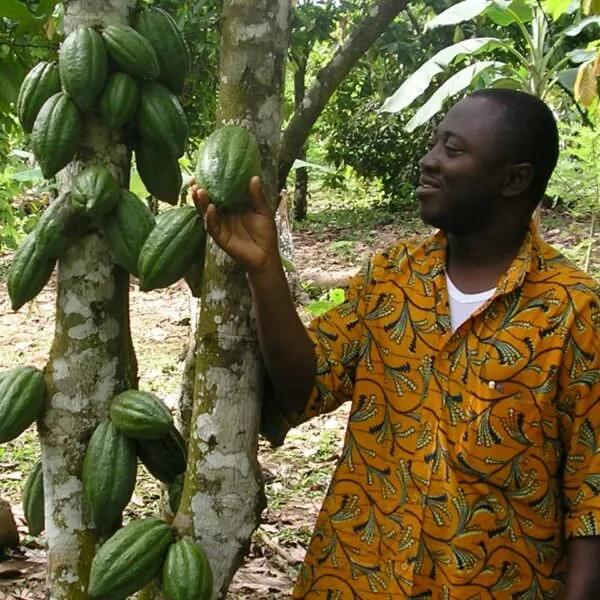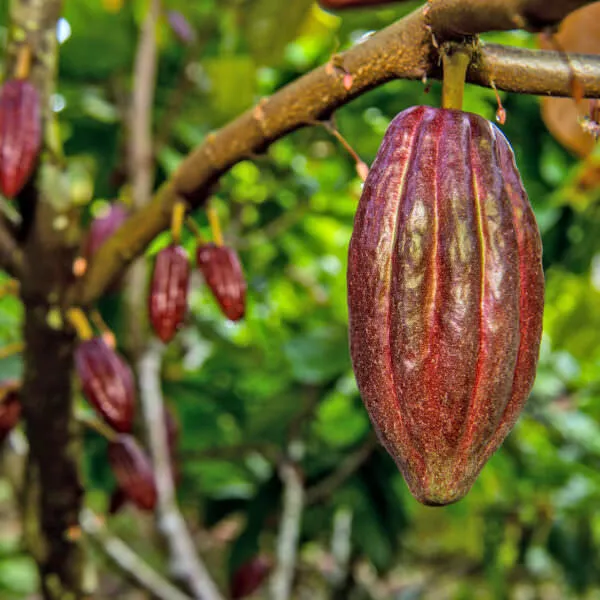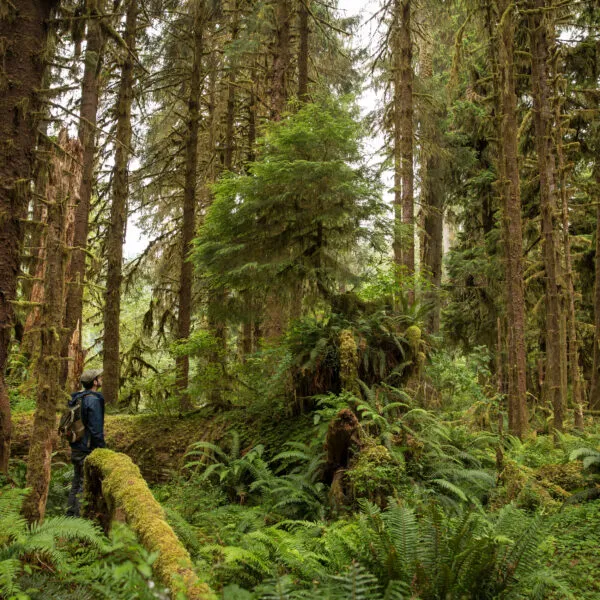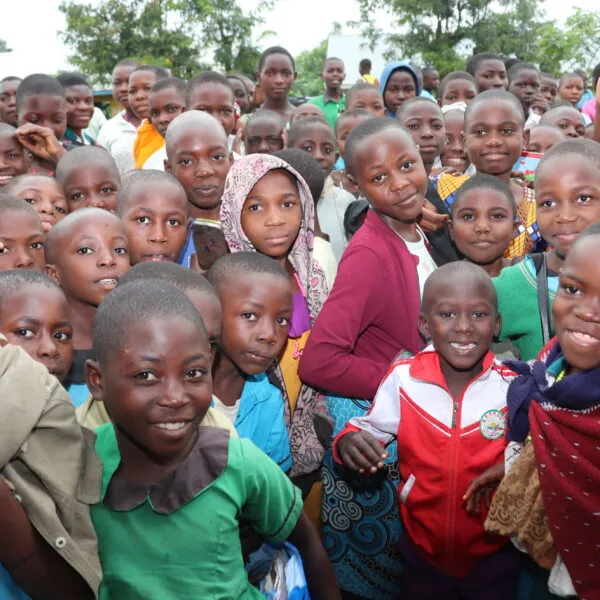Although Côte d’Ivoire is the world’s largest exporter of cocoa, the country has few women-owned cocoa farms. Step in Kpomin Minrienne Kole Edi, a successful farmer and entrepreneur who has spent her life breaking barriers—from helping other women farmers in her community to advocating for global policy reform. This is her story.
As the youngest child in her family, Edi had to convince her father to give her a small chunk of “wasteland” from his cocoa farm, which was all that remained after her siblings had inherited the arable land. Through hard work and persistence, she restored the abandoned plot into lush growing space. While the other women in her community focused on growing subsistence crops—or, just what is needed to feed themselves and their families—Edi’s entrepreneurial eye quickly moved to crops she could sell, like cocoa, coffee, and teak. Even so, she said, the purpose in the early days wasn’t just to make money; it was to prove to her community that she could.
In parallel with her days spent farming, Edi also managed to complete junior high school and computer training. At that time, Edi (who is now 45 years old) was considering a future career as a secretary, but agriculture called her back in. “I wanted to work for myself,” she said.
Increasing awareness—and incomes—on cocoa farms
In Côte d’Ivoire, women cocoa farmers are often excluded from membership in cooperatives and other community structures. And even when they gain membership, men often leave them out of decision-making processes.
“Parents don’t think of giving land to their daughters because they assume they will get married and be taken care of by their husbands,” said Edi. “But what happens to them in case of divorce if the inheritance was entirely given to their brothers?”
To address this gender disparity, she established an association of women cocoa farmers and wives of cocoa farmers who wanted to find ways to make their own living in between harvest seasons. The women’s association, spanning seven villages, offers its members training support for however they decide to generate extra income. This group became the basis for the cocoa cooperative that Edi currently chairs, called SCAFRA (Société Coopérative Fraternité d’Adzopé).
Fighting child labor and sexism in cocoa
Being one of very few women cooperative leaders in Côte d’Ivoire comes with significant challenges. (“I’ve only been in contact with one other woman co-op leader,” Edi said.) The men in her community did not immediately accept the idea of a woman in power and she faced sometimes violent opposition from them over the years. As time passed, she told us, most of them have come to accept her leadership—and today, SCAFRA now counts both men and women among its membership.
Another pervasive issue has been child labor. For years, the farms in her cooperative were continually working to put youth protections in place with little success. Many members needed thorough training and education that the cooperative just didn’t have the capacity to provide.
Support from the Africa Cocoa Fund
Then, in 2021, the 355-member cooperative received funding from the Rainforest Alliance’s Africa Cocoa Fund, a three-year initiative to help cocoa farmers implement the Rainforest Alliance Certification Program and preserve landscapes across West and Central Africa.
Edi explained that the ACF has been very helpful, enabling the cooperative to implement our assess-and-address system to tackle child labor. This holistic approach involved training co-op members in identifying and mitigating child labor risks, running awareness-raising activities in the wider community, and surveying local families to learn if they have children who should be in school.
The ACF also helped the co-op invest in women-led businesses, including the production of fruits and vegetables, like cassava, as well as chicken-rearing thanks to the purchase of 3,000 hens. This all amounted to improved financial security that helped parents pay school fees and hire the workers needed to operate their farms. Later, the cooperative used ACF funding to strengthen their chicken farming business by buying a car and new hens to replace the older ones.
Advocating for smallholders on the international stage
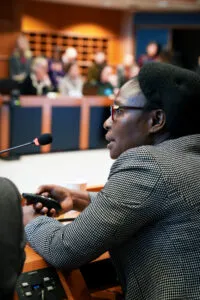
Working with the Rainforest Alliance advocacy team, Edi recently joined four other smallholder farmers from around the world to share their experiences with European Union legislators in Brussels. This meeting was part of an effort to influence the development of the Corporate Sustainability Due Diligence Directive (CSDDD), a bill that will set requirements for companies operating in the EU to conduct human rights and environmental due diligence in their value chains.
The smallholders all spoke about why it’s so important for EU corporate due diligence legislation to include measures that will improve the livelihoods of smallholder farmers and their families. Edi shared a story about how farmers in her cooperative were left with large quantities of unsold cocoa after traders didn’t fulfill their contracts—an unfair practice that’s commonplace in a power-imbalanced supply chain. This forces cooperatives to sell the remaining cocoa to small intermediaries at a much lower price, resulting in lost income and potentially affecting their ability to repay loans.
Edi said she was surprised that European decision-makers took the time to listen. “First, because I am Black, and because of the prejudices Africans suffer from,” she said. Second, because she had never seen smallholders directly participate in decision-making processes in parliament.
If their message is heard, she told us, the new legislation could make it possible to create viable jobs in countries like Côte d’Ivoire—in turn helping curb deadly migrations. Sitting in front of a panel of European decisionmakers, she ended her speech in a powerful way: “I ask the members of the Parliament to take into account our demands, and not to forget them after this event. I’m not here as Mrs. Edi, but as a representative of the cocoa smallholders of Côte d’Ivoire. Think about us smallholders, the marginalized, the poor, and do something for us.”
